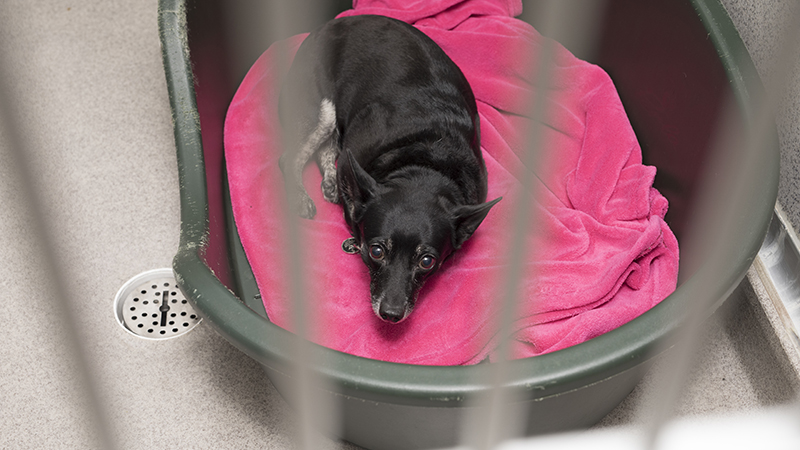Various sections of the Criminal Code of Canada deal with cruelty to animals.
445.1 (1) Everyone commits an offence who
- wilfully causes or, being the owner, wilfully permits to be caused unnecessary pain, suffering or injury to an animal or a bird;
- in any manner encourages, aids or assists at the fighting or baiting of animals or birds;
- wilfully, without reasonable excuse, administers a poisonous or an injurious drug or substance to a domestic animal or bird or an animal or a bird wild by nature that is kept in captivity or, being the owner of such an animal or a bird, wilfully permits a poisonous or an injurious drug or substance to be administered to it;
- promotes, arranges, conducts, assists in, receives money for or takes part in any meeting, competition, exhibition, pastime, practice, display or event at or in the course of which captive birds are liberated by hand, trap, contrivance or any other means for the purpose of being shot when they are liberated; or
- being the owner, occupier or person in charge of any premises, permits the premises or any part thereof to be used for a purpose mentioned in paragraph (d).
446 (1) Everyone commits an offence who
- by wilful neglect causes damage or injury to animals or birds while they are being driven or conveyed; or
- being the owner or the person having the custody or control of a domestic animal or a bird or an animal or a bird wild by nature that is in captivity, abandons it in distress or wilfully neglects or fails to provide suitable and adequate food, water, shelter and care for it.

